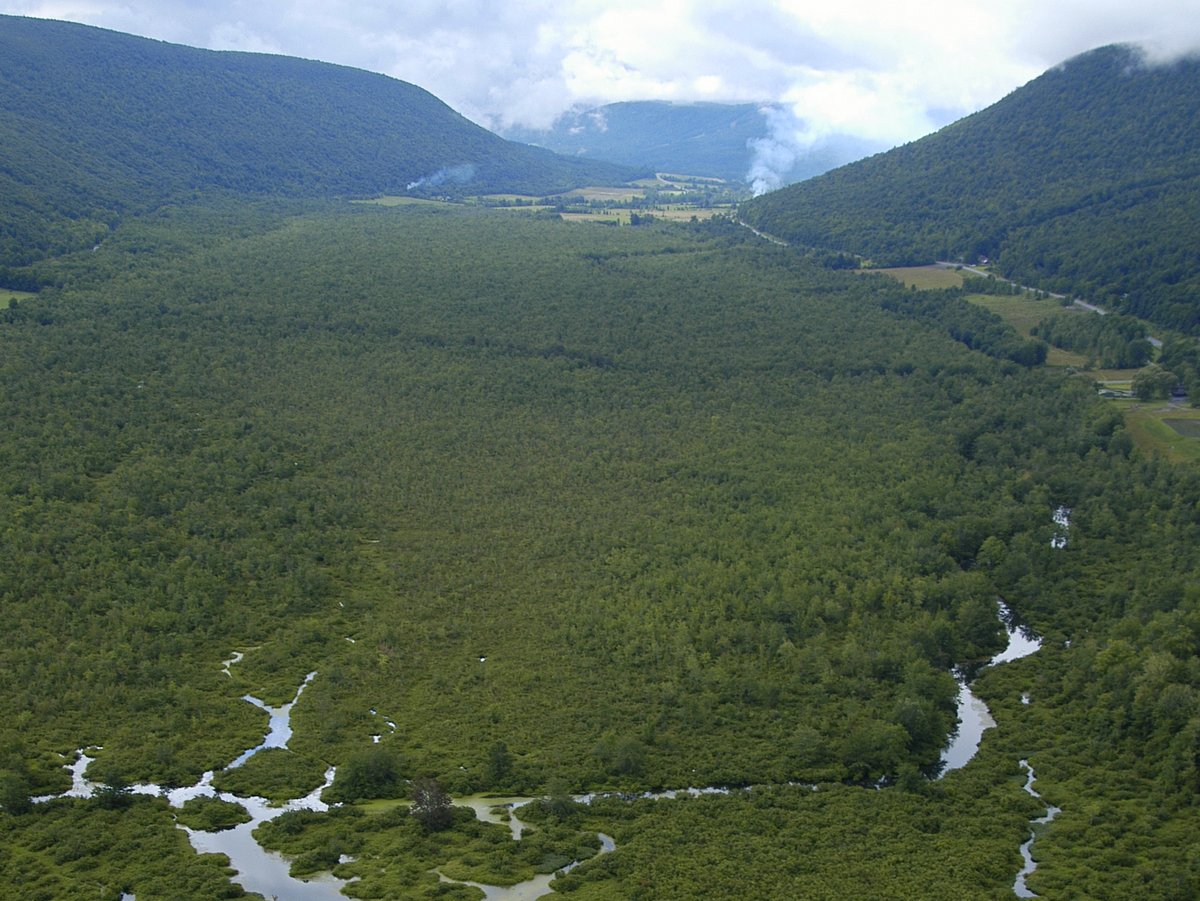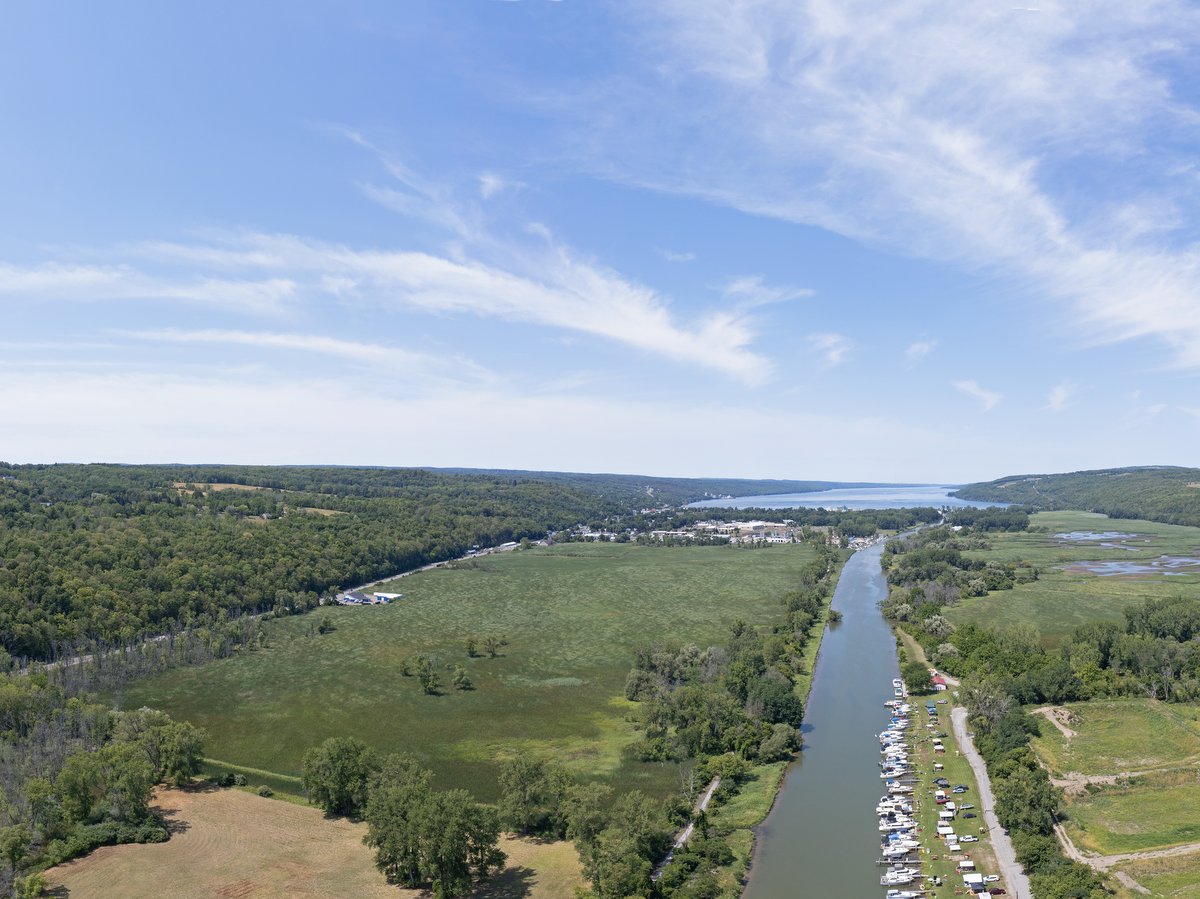The Finger Lakes Land Trust (FLLT) and New York State Department of Environmental Conservation (DEC) today announced the protection of more than 195 acres in Ontario and Schuyler counties.
The State is acquiring 57 acres in the towns of Canadice and Richmond, Ontario County, that will be added to the Honeoye Inlet Wildlife Management Area and 140 acres of wetlands in the towns of Dix and Montour Falls, Schuyler County, that will be added to the Catharine Creek Wildlife Management Area.

Photo: Chuck Feil
Honeoye Inlet Acquisition
Three parcels totaling 57 acres near the south end of Honeoye Lake were purchased by the FLLT in 2019. Two of the properties include frontage on East Lake Road and consist of steep mixed hardwood forest overlooking the inlet and lake. A third parcel located on West Lake Road buffers adjacent state-owned wetlands and provides scenic views of the lake and surrounding hillsides. Protection of these three properties will help ensure water quality within Honeoye Lake and maintain the land’s role in filtering runoff. DEC purchased these parcels from the FLLT for $126,000.

Photo: Bill Hecht
Catharine Creek Acquisition
The new 140-acre wetland parcel is adjacent to both State Route 14 and the popular Catharine Valley Trail, bordering Catharine Creek Wildlife Management Area. DEC purchased this property from the FLLT for $118,000. The FLLT will use the proceeds to cover costs associated with other land transactions with the State and enable future time-sensitive acquisitions.
“Protecting water quality and preserving wildlife habitat are top priorities for DEC and our conservation partners across the state,” DEC Commissioner Basil Seggos said. “Once again, DEC is partnering with the Finger Lakes Land Trust on acquisitions that will enhance the State’s Wildlife Management Area network and these lands’ recreational and environmental benefits for New Yorkers.”
“These acquisitions expand recreational opportunities while helping to ensure water quality,” said Finger Lakes Land Trust Executive Director Andy Zepp. “We are delighted to continue our productive partnership with the DEC.”
DEC funding for these acquisitions was provided by the State’s Environmental Protection Fund (EPF), a critical resource for environmental programs such as land acquisition, farmland protection, invasive species prevention and eradication, recreation access, water quality improvement, and environmental justice projects. Among the many environmental victories in the 2022-23 State Budget, Governor Hochul succeeded in increasing the EPF from $300 to $400 million, the highest-ever level of funding in the program’s history.

